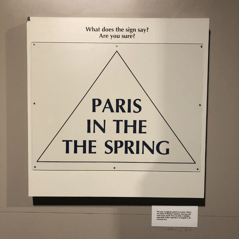Tips for Self-Editing and Proofreading
 Maybe you can’t pay for professional proofreading. Maybe it would be wrong for you to pay for a proofreading service (say, for a college essay, which would give you an unfair advantage over your peers). Maybe you just want to better your self-proofing skills to gain more confidence as a writer.
Maybe you can’t pay for professional proofreading. Maybe it would be wrong for you to pay for a proofreading service (say, for a college essay, which would give you an unfair advantage over your peers). Maybe you just want to better your self-proofing skills to gain more confidence as a writer.
Whatever the reason, you can proofread your own work. To prove it and to ensure you leave this page armed with everything you need to proofread your writing with ease, we interviewed ProofreadNOW.com President Phil Jamieson for his top self-proofing tips.
Use Spell-check But Don’t Trust It
Make the most of spell-check, but don’t assume for a skinny minute it’s a foolproof way to prevent errors. Take it from proofreaders who see thousands of documents a week: Spell-check gives you a false sense of security because it doesn’t have a brain capable of critical thinking.
For example: “Pubic” is a correctly spelled word. Spell-check doesn’t know you meant “public.” Spell-check doesn’t care that you meant “public.” Spell check will let you prance all the way to your presentation with C-suite until you click to the slide with that word in 72-point font on a 10-foot-wide screen and accidentally read it as written.
There’s no graceful recovery for that moment. Bless your heart. (And don’t even get us started on “prostrate” versus “prostate.”)
And as for checking grammar, well, just type “The boy the girls loves is here.” into a Word doc with the so-called grammar checker on and see what it thinks: NOTHING.
Create a List of Commonly Misspelled Words
Since spell-check is only helpful to a point, Phil suggests creating a list of words that are commonly misspelled. Most of the time, these aren’t “hard” words, since people often look those up. They’re words that have very similar “cousins.” Here are some examples:
- health / heath
- tract / track
- complement / compliment
- form / from
- casual / causal
- verses / versus
- contact / contract
We’ve noticed there are sets of words that are frequently misused/misspelled in specific industries. You’ll have your own. Search for these words before finalizing your edits. Read them in context to ensure they’re spelled correctly for their intended meaning. Keep adding to your list as you come across words that trip you up.
Read Aloud, From Right to Left
Our brains are amazingly efficient. That means they will put the least amount of effort into something repetitive, like reading words. We read a sign (such as the one at the top of the blog) and our brain simply deletes the extra “the.”
To shake loose and make our brains reset, we have to do things differently. Phil’s favorite way to read while proofing is backward. Reading aloud, especially from right to left, forces our brain to process each word individually and consider the meaning and sense of each word, phrase, and sentence. That way, auto-complete doesn’t take over and trip us up.
Ask Friends and Family to Read Your Work
Ask honest (and kind) friends or family to act as second or third readers. They will almost always catch something you didn’t because they aren’t reading from the vantage point of knowing exactly what you meant. Be willing to let them point out your mistakes without taking it personally. After all, you’ve asked for their help.
Read the ProofreadNOW.com Blog
While we’ve warned our readers of the dangers of proofreading their own work, we also want to empower them to be excellent writers. So we give away our secrets on a biweekly basis in the ProofreadNOW.com blog. Check out the posts below for tips from professional proofreaders, many of whom have been in the business for decades.
- Eight Typos Spell-check Won’t Catch: A great start for your list of common misspellings.
- Easy Grammar Tips for B2B & B2C Writers - Part 1: A quick list of the easiest and most important ways to tidy up your writing.
- Easy Grammar Tips for B2B & B2C Writers - Part 2: More tips for the things that trip writers up the most (but are super easy to correct).
- 8 Proofreading Tricks (and a Few Treats): Like an excellent wine pairing to this post; eight tricks for training your brain to recognize grammar mistakes more easily.
- Tips and Tricks for Proofreaders: Once you start making strides in your self-proofing journey, this blog post is the way to up the ante and refine your skills. You may even be accused of being a professional proofreader.
- Endless Proofreading Help: Want more interesting, helpful, sometimes funny grammar-related tips and stories sent to your inbox? Subscribe to our email list! If you change your mind, we make it super easy to unsubscribe. We promise to never sell your email address; that’s a business faux pas (add that to your commonly misspelled words list).
Do you proofread your own work? What are your top tips for self-proofing? Tell us in the comments below!



